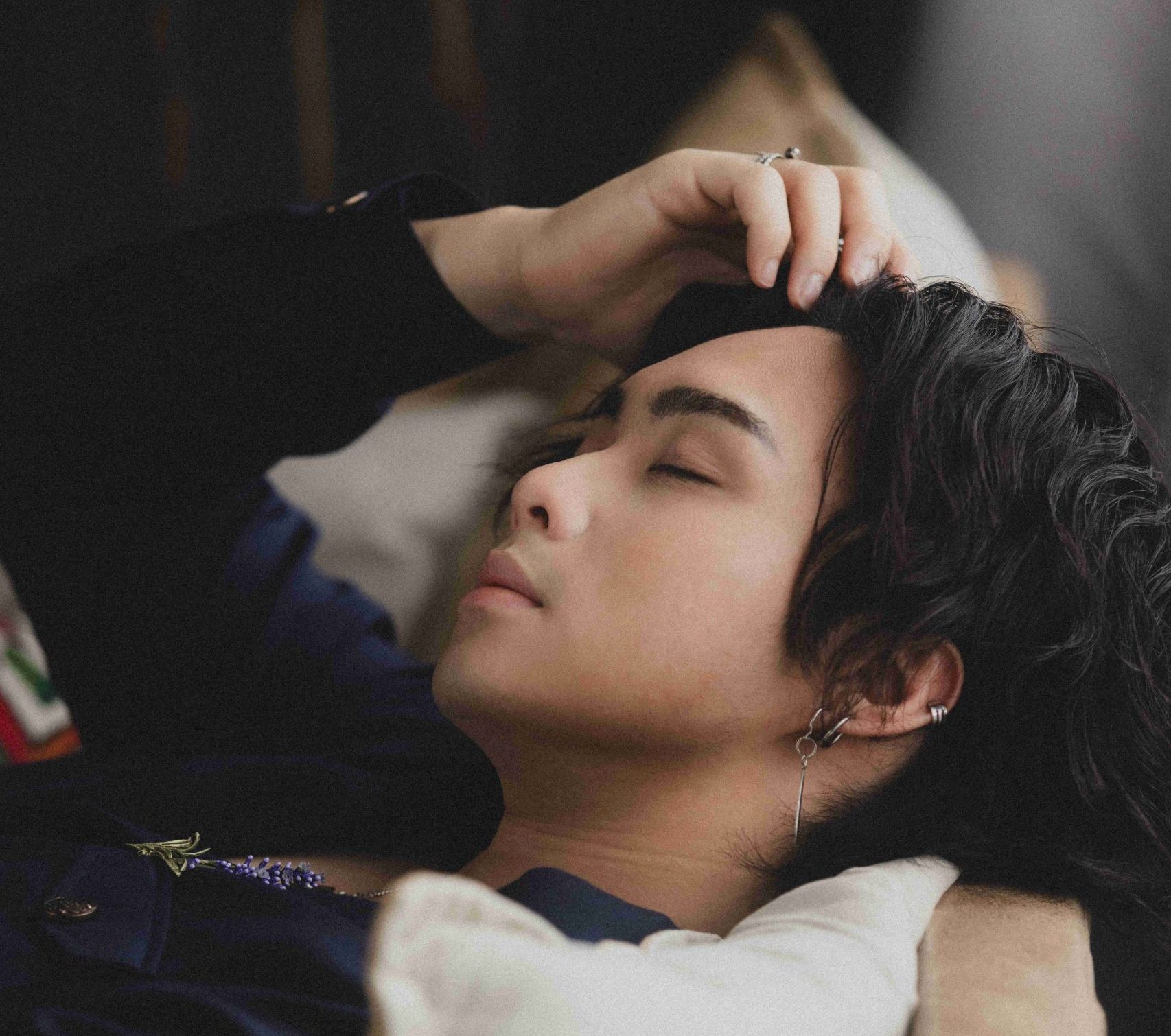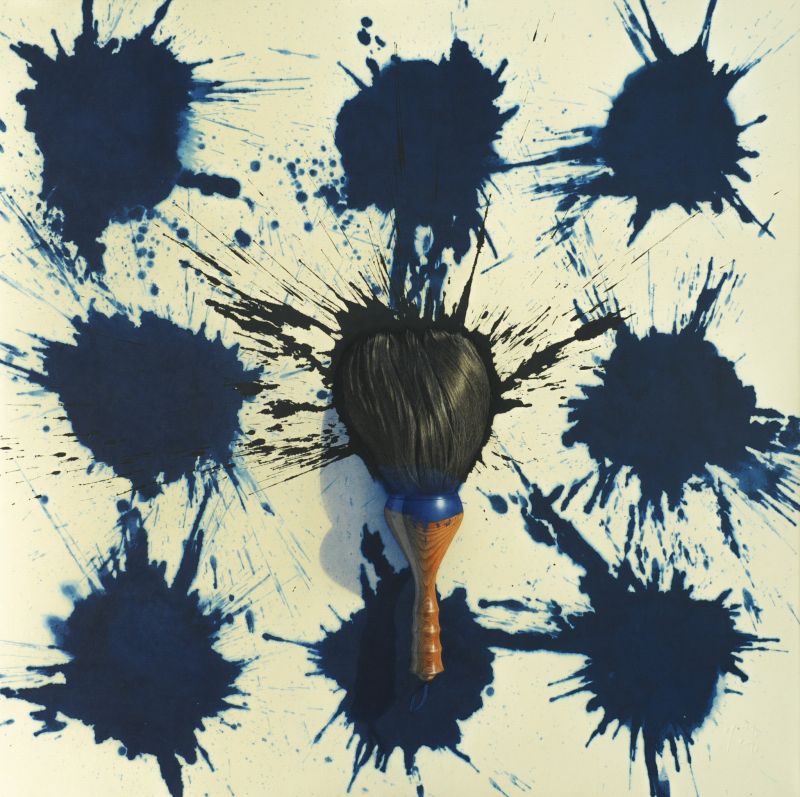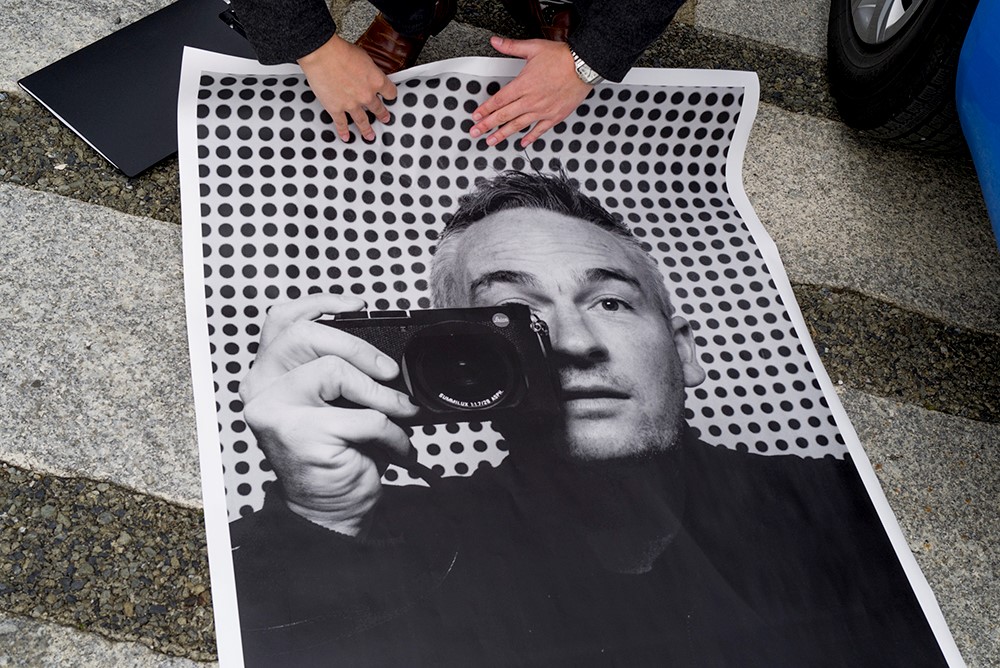If Michael Chiang were a punctuation mark, he’d be a semi-colon. When we meet for an interview, the 64-year-old veteran playwright jumps excitedly from one point to another, his thoughts spilling everywhere like Mexican jumping beans. He’s not the type of artist to carefully chew over words and syntax before he answers—and perhaps that’s what makes his work so enjoyable, and relatable, to watch.
Chiang is the wordsmith behind iconic Singapore productions Army Daze (1987) and Beauty World (1988), along with other popular comedies like Mortal Sins (1995) and his last original play, High Class (2013). Army Daze and Beauty World have each been restaged a good five to six times, school productions notwithstanding—but this year, Chiang is reaching a little deeper into his playbook for material.
Written and premiered in 1992, Private Parts will likely be remembered as a ground-breaking production in Singapore theater at the time. The comedy revolves around a popular TV host and three transsexual characters who meet in a sex change clinic, where unexpected love and ruckus unfold. Back then, the play was lauded as being ahead of its time, for handling an unexplored topic with both humor and sensitivity. Running from Nov 2-18 at the National Library’s Drama Centre, the return of the play will be its fourth staging; its last nationwide showcase was in 2004. The reboot sees actress and director Beatrice Chia-Richmond at the helm, with cast members Jason Godfrey, Shane Mardjuki, Chua Enlai and Zee Wong as the leads.
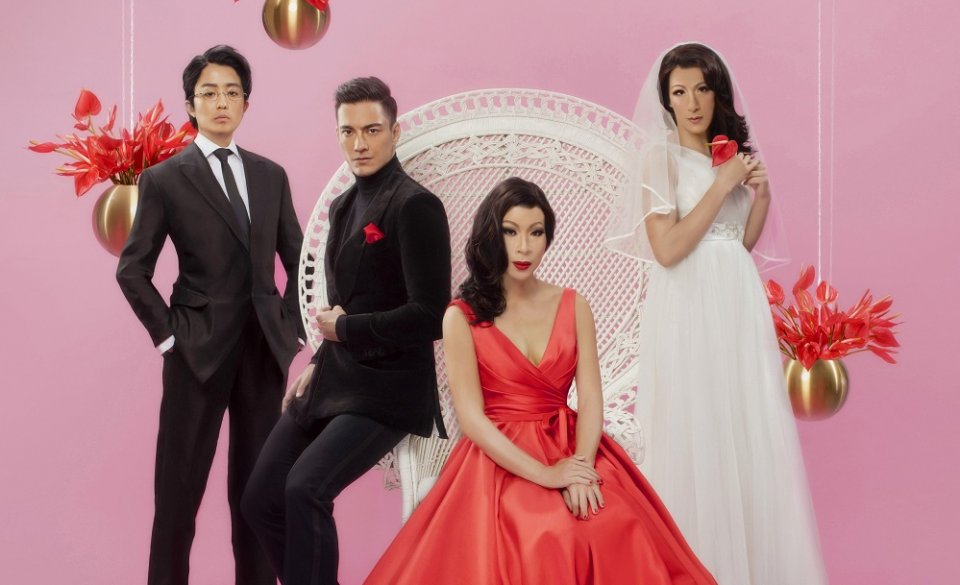
From L-R: Zee Wong (Edward), Jason Godfrey (Warren Lee), Chua Enlai (Mirabella), and Shane Mardjuki (Lavinia)
The show will be the debut production of Chiang’s newly formed, non-profit theater company, Michael Chiang’s Play Things—which shares its name with an anthology of all the plays Chiang has ever written, launched in 2014. To the surprise of many, Chiang was never a full-time playwright. At the height of his career, he was a journalist with the national newspaper; then the group publisher of magazines at Caldecott Publishing. It took a hiatus of almost 14 years before he wrote a new work, High Class. For anyone who’s missed seeing new stuff from Chiang, the launch of Play Things is a long time coming.
Soft-spoken but his speech littered with ‘lah’s and ‘leh’s, he is every bit the down-to-earth dramatist you’d come to expect from watching his plays. But he also takes you by surprise when names like RuPaul and the Jenners roll right off his tongue. If anyone can make us believe that there’s no such thing as a late start, you can bet it’s Michael Chiang.
We sat down with the boyish playwright to take a closer look at his Private Parts.
Congrats on the big announcement! What have you been up to the last few years?
My last show was a new play Army Daze 2, which was last August. Two years before that we (restaged) Beauty World, and before that was High Class, so I’ve been quite busy. Annie (Pek), my producer, did my last five shows with me—she’s independent; she used to be Dick (Lee)’s manager as well so she did Beauty World. Theater-wise, every one or two years I’ll restage or stage a new show; this is just the first time I’m doing it under my own brand.
So, 14 years later; will you be updating the script?
I’m not updating it to make it current, which is what I normally do for all of my plays when I restage them. I’d always make it the year it’s being staged, to make it feel more relevant to the audience.
This one I feel, because the reception (to it) was so different, I thought it might be interesting to keep it to the ‘90s and see how it looks today. One of the lines in the play, one of the characters says, “What makes you think Singaporeans are going to accept this? They’re just going to sit in their living rooms and judge.” And you feel it, back in the ‘90s. So I was thinking if I have that line now, will someone say ‘no lah, we’re so progressive now’, or has nothing changed? That was part of the reason—that it’d be interesting to just host that line in today’s context and see if it’s actually true, that we haven’t changed. I think maybe we haven’t changed.
For those who haven’t had the chance to catch it, is Private Parts offensive?
Oh no, not at all. This was performed three times with no rating; you can bring kids to watch it. I think if you look at the play, there is nothing that is potentially offensive. I don’t use swear words, so it’s not an issue. There’s no sex; it’s “sexy” because it’s cheeky—but there are no bedroom scenes, no groping scenes, no kissing scenes, nothing. It’s quite a sweet storyline; it’s just that the characters happen to be from the trans community.
But back then they were probably not encountered in everyday life, so there was probably some fascination with it. Probably today you’re more familiar, because of social media, because of RuPaul, Caitlyn Jenner. Now you’re more aware and attuned.
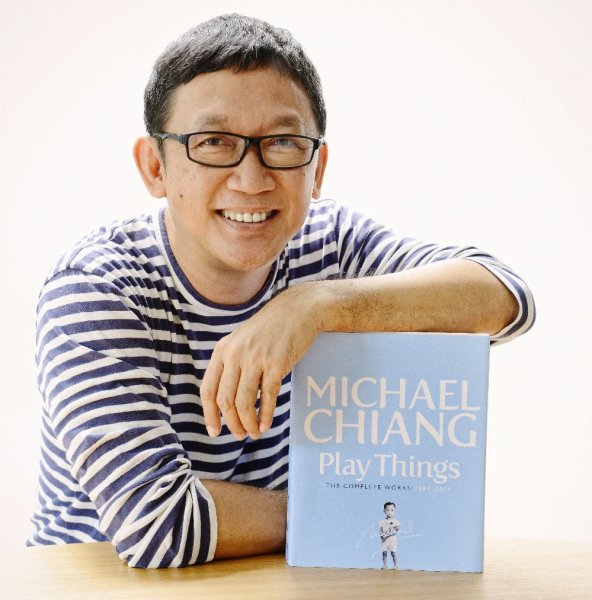
Is the play colloquial?
Not really, definitely not as much as Army Daze is. Army Daze is because of the army setting, therefore you have all the Singlish coming out. This one, there’s very little of it. I think most of my other plays don’t rely on Singlish that much, unless there’s one particular character that represents something. Actually I write usually in what I call “middle-class Singlish” lah.
Has the time for colloquial humor passed?
I think you need to know when to use it—if you overplay it just for effect, audiences can get turned off; it can get a bit corny. So I am quite careful, and if I do use it, it has to be authentic for me as a writer. It can’t just be for laughs. There was a period when Singlish was kind of embraced—I think every other person was trying to add that local feel to every scene, to every character, and it became quite distracting. But I think we’re past that.
How many times can you restage a show before it gets tired?
I don’t know; it surprises me—for Army Daze, when I first did it back in 1987, I just thought it would be a one-off, and that’s it. Now it’s gone through so many incarnations; it’s been staged like six times, it’s become a movie. And people come to me and say ‘Eh, I want to bring my son to watch—when are you staging again?’ Because it’s NS, I think the subject matter allows itself to come back. So for that one I think I could probably stage it again, quite easily *laughs*
But how do you keep things fresh?
I think even if I don’t update the script, I’ll tighten it so the pace moves faster. I’m particular about how things are paced—so if I’m looking at a scene, and this particular dialogue between A and B is not punchy enough, it doesn’t need to change in terms of the updating but maybe in terms of the energy. Because your audience today is different from the audience 26 years ago. So even small talk might feel very tiresome for this audience.
That’s one way I would refresh it. And I think the choice of music—we want a ‘90s sound, but it needs to be produced in a 2018 style. Because some things sound very retro in a nice way; some things sound very dated. We’ve also discussed with the set designers, the costume designer, the music producer—to make sure that even though it’s technically a period piece, the sound must be current.
Does having a female director (helm Private Parts for the first time) help?
It’s not so much a female director as it is Beatrice. We both get along very well; I trust her completely. It’s very easy for us to be in sync to pursue something; make a change, make a statement. I think our vision is very similar—how we want to play things, how we want to move things ahead. She doesn’t know yet, but by default she’s my first choice for every show.
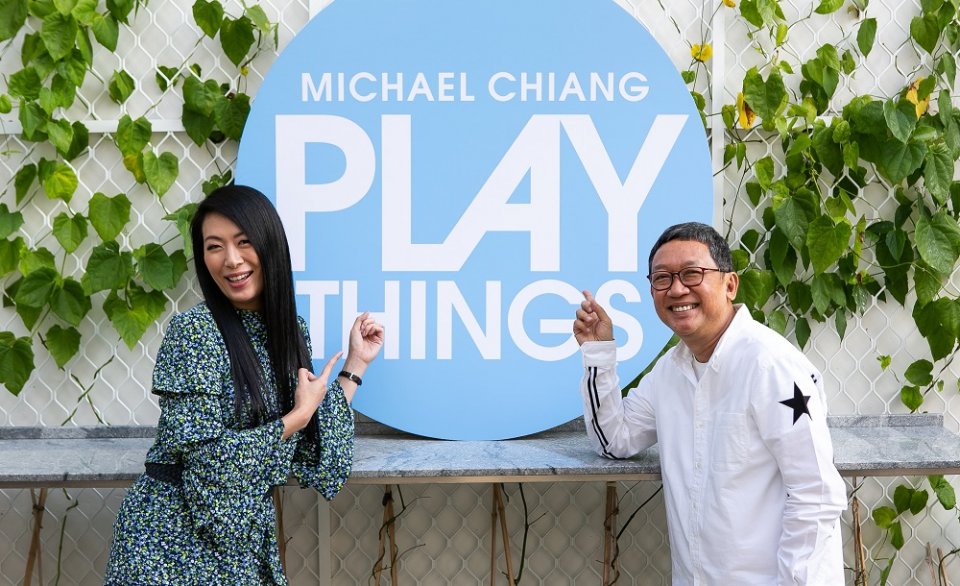
Chia auditioned for the role of Edward for the 2004 staging of Private Parts, but was turned down by Chiang when she told him she would cut her hair despite getting married that year
A lot of people are shocked you haven’t been awarded the Cultural Medallion yet. Why do you think that’s so?
Maybe my stuff is too popular, I don’t know? *laughs* I don’t really know. For one, I don’t fit into that… I don’t consider myself a full-time artist. To me, this has always been part-time; I’ve always had a corporate job, I’ve been a publisher. So playwriting was always a hobby for me. So I look at it and I’m like, aiya, doesn’t make sense lah; because you have artists like Iskandar (Jalil), full-time musicians. I feel they are the ones who are in the running for this, not someone who just dabbles part-time, does one show and goes away. I just don’t think it’s right—seriously.
As a former entertainment journalist, do you think people just don’t take lifestyle content seriously?
Yes and no lah. I think also when you do very popular shows, people tend to go ‘it’s not really art lah’; you know? The late (Kuo) Pao Kun, I think he was always quite fascinated with my shows. He said to me ‘Michael! You should write something serious. We should do something together.’ He probably thought I wasn’t writing serious stuff. Because I was writing things like Army Daze and Beauty World, which he probably considers very light comedy. So probably to the more traditional theater practitioners, maybe this is more fun entertainment—which is fine. I like to write things like that; I’m not shy to admit it.
Tell us about your new company, Play Things.
Play Things really is brand new; I have no idea how it’s going to turn out. But ideally I would like to stage at least one show a year.
I will stage my own shows, but I’m also hoping to find voices like mine. I’m open to staging other people’s scripts, but hopefully (with) someone who’s in line with my kind of shows; to at least keep the spirit of my shows. I hope to get to go there, to find the people with the same kind of writing style, same kind of approach to theater; who can guarantee that the audience can come in, have a great time, and go home happy. That’s always been my thing—to make sure people who come are happy, watch a show, big smile on their faces, and say ‘I’ll bring my family to watch it next weekend’. I think that makes me happy—if people identify with the stories; they feel like they can relate.
Why now, so late in the game?
It never occurred to me to do it, because people always come to me and ask ‘Can I stage your shows?’ And I say sure, let them do it lah. It just popped up one day— should I try it myself? Shall I do it? Why not.
Does this mean we’ll be seeing more new, full-length plays from you in the future?
Right now we’re talking about what we can do next year—because there are a couple of my plays that have anniversaries next year so we might want to restage them; that’s the good thing about having written plays long ago. There are actually three plays that have anniversaries next year: Mixed Signals (30th), My Lonely Tarts (20th), and Mortal Sins (25th).
So of course it’s a lot easier to market. But then again it’s a matter of weighing which is the best show to follow this, and which is the best show to introduce next year, and why. We haven’t made a decision yet, but it’s going to be one of these three plays, I think. Unless I decide to write something new.
Private Parts runs from Nov 2-18 at the Drama Centre, National Library. Tickets are available here and you can find more information here.


